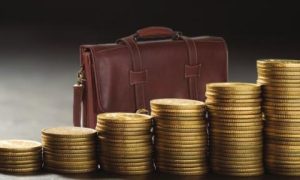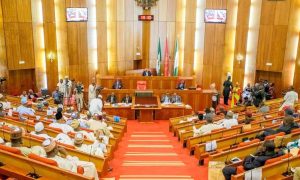…David vs Goliath lawsuit nears appeal as White House starts revising blanket levies
A litigation firm suing the Trump administration on behalf of five importers over its so-called “liberation day” tariffs, which are being revised this week following a three-month pause, has vowed to fight its case all the way to the US’s highest court if necessary.
On July 7, President Donald Trump posted on Truth Social the letters sent to 14 governments advising them of their new tariff rates from the start of August. They are broadly on par with the rates originally set in April, including Japan and Korea (both 25%), South Africa (30%), Thailand (36%) and Indonesia (32%).
As nations worldwide await their reciprocal tariff revisions over the coming days, the Liberty Justice Center, a law firm leading the VOS Selections vs Trump litigation, has reiterated its position that the levies are illegal and warned the US government may have to refund tariff revenues.
Abuse of Emergency Powers?
Trump imposed the levies using the International Emergency Economic Powers Act, which grants the president special powers during a national emergency. He argues the US’s $1.2tn goods trade deficit is a national emergency.
The Austin-based organisation is fighting the case on behalf of five small businesses that claim that Trump’s use of IEEPA powers is illegal.
“The US has had a trade deficit for almost 50 years. It is not an emergency or unusual or extraordinary,” says Jeffrey Schwab, senior counsel and director of litigation at the Liberty Justice Center, referencing the situations in which IEEPA can be invoked.
The lawsuit was filed 12 days after retaliatory tariffs were announced on April 2. The US’s trade court ruled in Liberty Justice Center’s favour and struck down the tariffs on May 29. However, the White House quickly obtained a stay on the decision while it appeals.
That appeal will be heard on July 31, one day before the revised tariff rates will kick in. It’s not clear how long it will take the court to reach a verdict, but Schwab says “given the importance of this case we hope they rule quickly”.
If Liberty Justice Center loses, he says it will seek to challenge the decision in the Supreme Court, the country’s ultimate appeal tribunal.
“Our legal challenge is not just about helping American small businesses — it’s about defending the rule of law in international commerce,” he says. “When the US acts unilaterally and unpredictably, it harms small exporters abroad who rely on stable market access.”
Unprecedented Use
The US Constitution requires Congressional approval to impose tariffs. Trump’s “liberation day” levies — plus those announced in February against Mexico, Canada and China that target fentanyl trafficking — mark the first time a president has invoked IEEPA to sideline Congress and introduce import duties via executive order.
The law, which has primarily been used to impose sanctions on the likes of Russia, Syria and Iran, does empower the president to directly regulate “importation” in response to a precise and unexpected threat to the US emanating from abroad.
But the trade court agreed with the Liberty Justice Center that blanket tariffs aiming to tackle general economic concerns exceed Trump’s authority under the IEEPA.
If this ruling is upheld, Schwab says the main outcome would be an end to the “liberation day” tariffs. But the court could also order the repayment of tariff revenues collected from importers. Schwab notes there are examples of US firms recouping illegally collected duties, including antidumping duties which flouted the North American Free Trade Agreement.
Americans Fighting Tariffs
The namesake plaintiff in VOS Selections vs Trump is a family owned wine importer in New York which is joined by four other small firms in industries such as fishing tackle and women’s cycling apparel. Schwab says they are just a handful of the businesses that approached Liberty Justice Center knowing the tariffs would “severely disrupt” their operations.
Separately, 12 US state governments — including Republican-leaning Nevada and Arizona — are also suing the US administration for exceeding its authority in using IEEPA to impose tariffs.
Schwab says there are at least four similar lawsuits which have been paused until a final decision is reached in VOS Selections vs Trump. They stand to benefit from that case’s expanding legal team which last month gained Neal Katyal, who was acting solicitor-general under the Obama administration, and former federal court judge Michael McConnell as co-counsel.
At a time when questions are being raised over the Trump administration’s respect for the rule of law, the significance of an ultimate victory against the government would go beyond international trade.
“If courts strike down these tariffs, it signals to global partners that the US remains a country governed by constitutional limits — not one-man trade wars,” says Schwab. It would also remind “the world that [US] trade policy must have democratic accountability, making deals more stable and less subject to executive whim”.
fDi



























